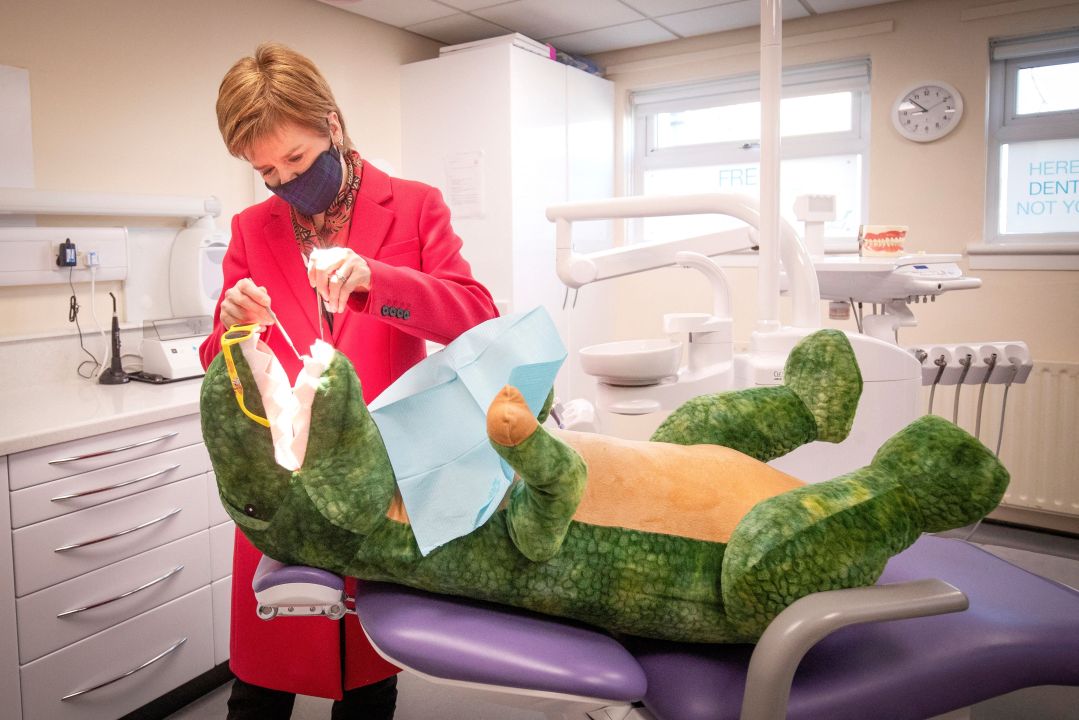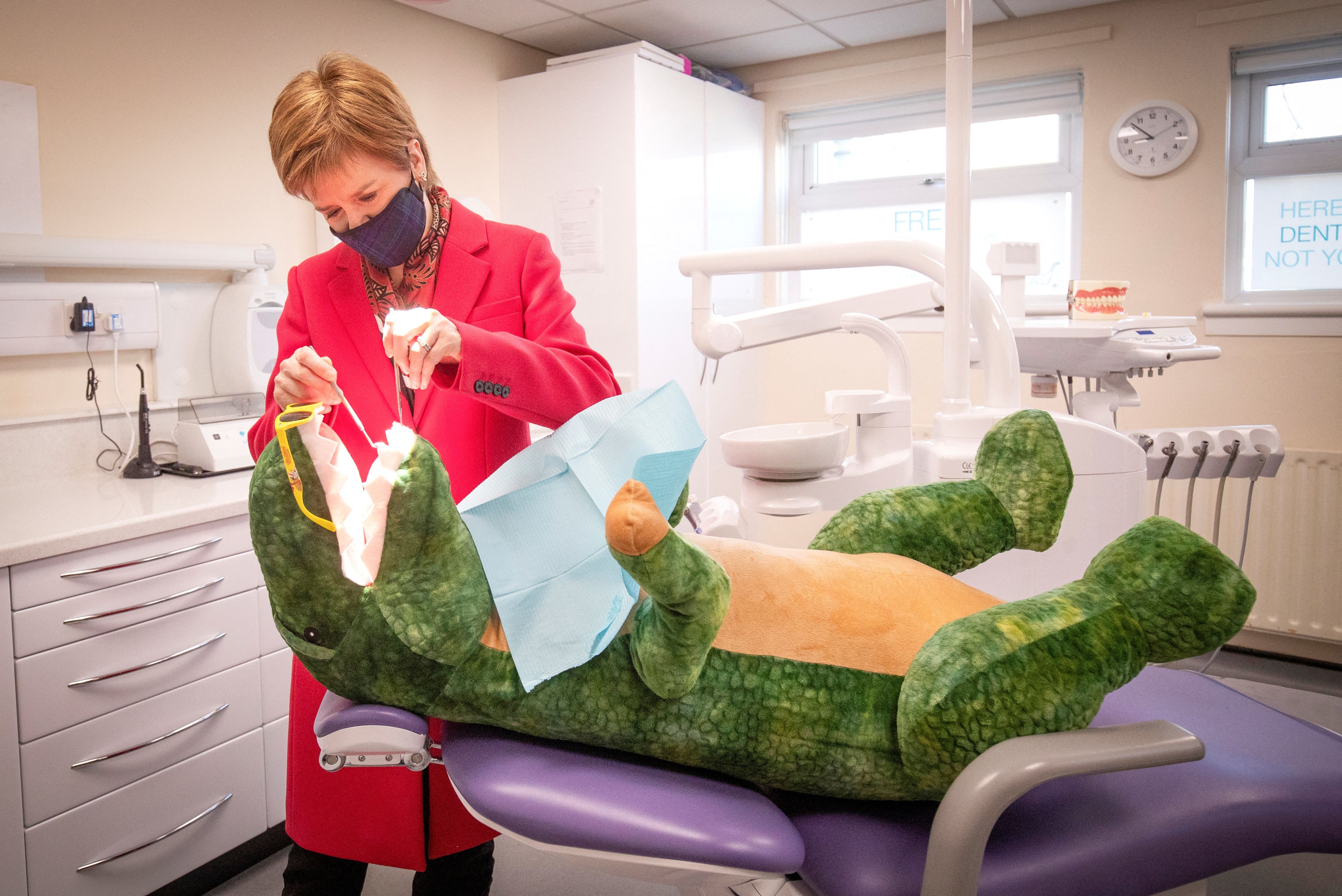There isn’t much I agree with in the SNP’s manifesto for the Holyrood elections, so it seems peevish to cavil about the policies to which I am generally sympathetic. These are: a national care service, 100,000 new houses, abolition of dental charges, free school meals, investment in closing the attainment gap and more money for skills and training. I might quibble with the universalism of some measures because I would rather see resources redistributed from those with means to those without them. Even so, the Nationalists are making some of the right noises, if purely for their own electoral benefit rather than any late conversion to social democracy.
The obvious question, then: How do they intend to pay for it? The Scottish Conservatives estimate it would cost £95bn to fund every pledge in the manifesto for a single year. The Scottish Government budget unveiled in January outlines spending for this fiscal year of £45bn. My best guess is that they don’t intend to implement all of it. That kind of shonky salesmanship is to be expected from a government up for re-election but even if they only delivered half the policies put forward, it would mean a hefty bill.
That will be of only marginal concern to the SNP. It is already using temporary Covid-19 money from the Treasury to fund long-term, unconnected policies such as free bus passes and additional funding for councils. The Institute for Fiscal Studies warns that ‘from 2022-23, the money for these policies will likely have to be found from within the Scottish Government’s “core” funding’.
Those who believe the United Kingdom should continue to exist now have the worst of all possible worlds in Scotland.
Any other government would be wary of giving voters goodies it could not afford, not least while promising them a five-year income tax freeze. However, devolution shields the SNP from the consequences faced by other governments. It can live beyond its means thanks to the Union it wishes to dismantle and, when the money runs out, blame that same Union for robbing Scots of their shiny new services and programmes. Not everyone who pays the piper gets to call the tune. Westminster will take a hit in the pocketbook now and a hit in the polls later.
When Scotland rejected independence in 2014, I thought ‘devo max’ — maximal devolution of tax, spending and borrowing powers — would satisfy those who had voted Yes because they wanted more autonomy and those who voted No while wishing to see a more powerful Holyrood. I was not alone, many were the fools of further-devolution, and we were convinced that ever-weaker Union would in fact enhance the Union. It’s hard to explain such naiveté, except to protest that all the alternative options seemed worse.
Those who believe the United Kingdom should continue to exist now have the worst of all possible worlds in Scotland. A nationalist party 14 years into government and still able to count on half the vote in any election and polls routinely showing a majority for secession. A devolved parliament being used as a trojan horse to bring about an independent Scotland and a government apparatus being quietly built into a proto-state to run it.
Extra powers and extra money from Westminster, intended to ‘strengthen the Union’, deployed instead to coax more voters into rejecting Westminster altogether. Public services, new and expanded programmes, and election-eve inducements paid for by the Barnett formula, Covid support transfers and domestic revenue reliant on full and unfettered access to the UK single market — all without popular debate of any prominence or substance about how such spending would be sustained after cutting ourselves off from that formula, those transfers and that market. Worst of all, a UK Government with a majority of 80 too cowardly to confront these problems but poorly advised enough to create entirely new problems on top of them.
There should be a political equivalent of the penitential act found in the Catholic liturgy. During the celebration of Holy Mass, the faithful admit: ‘I have greatly sinned, in my thoughts and in my words’, before beating their breast and acknowledging that said transgressions came about ‘through my fault, through my fault, through my most grievous fault’. The hope is that, by expressing ardent contrition, the Virgin Mary will intercede on your behalf and square things with the Big Man upstairs. I greatly sinned, through my most grievous fault, in once believing that devolving further powers, especially tax and welfare powers, would a) make Holyrood a more serious, responsible parliament and b) underline the case for solidarity rather than assist those who practise the politics of resentment and division.
It’s probably a good thing for commentators to reflect on their wrong calls but it should be essential for ministers, the people who advise them and the MPs who vote aye or no on their policy proposals. Labour cannot bring itself to admit that devolution as structured and implemented was a mistake because it was, after all, their mistake. Confronting it would involve apportioning much blame to Donald Dewar, the primary architect and a secular saint since his untimely death in 2000. The Tories have even more reason to keep schtum. In opposition, they warned devolution would break up Britain then, in government, handed the SNP more powerful tools to get the job done.
Downing Street hoped the Salmond-Sturgeon scandal would drop a roadblock in the middle of the march to separation. Sir Keir Starmer is being told that what the Scots really yearn for is a federal constitution with an elected upper chamber of the nations and regions. They speak of little else in the Gorbals. The Scottish Labour hierarchy and even the party’s best thinkers maintain that all would be well with devolution if they could get back in charge of it, a psychological buoy they cling to like Kate Winslet to that raft at the end of Titanic, even as everyone around them struggles to keep their head above water. It’s one thing to invent a system of government that only works if the same party wins every election; it’s another thing to brag about it.
The government, the opposition, the pro-Union parties at Holyrood, the policy wonks, the commentariat — none can bring themselves to admit the scale and urgency of the threat to the Union because the remedies they propose (and those they brief off-the-record) are plainly inadequate. Fourteen years on, they are still dumbfounded that the devolution system all the clever people said would bury separatism has in fact made it the immovable force of Scottish politics and too paralysed by fear to do anything about it.
Holyrood either has to be reformed or it must be accepted that it will always be, or have the capacity to be, the headquarters and primary instrument of the Scottish independence movement. Make devolution work to the Union’s ends or it will end the Union.








Comments